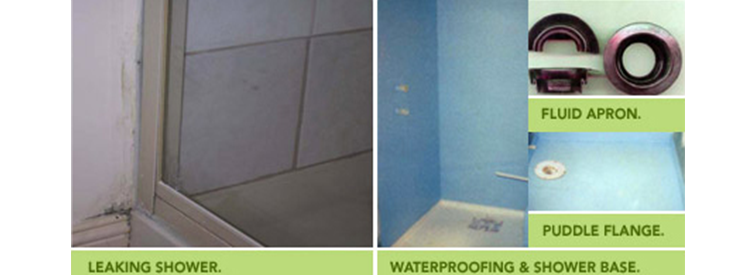
Unfortunately, leaking shower recesses are one of the most common building faults and complaints in Sri Lanka. It really doesn't need to be the case though. The modern waterproofing systems that are available, and the tough building codes that we have in place mean that with correct installation, a shower recess should never leak (except due to extreme structural movement).
Remember that a tiled and grouted surface is not actually completely waterproof. The waterproofing membrane under the surface, however, is.
A leaking shower recess can lead to structural damage and expensive repairs. As soon as a leak is suspected, it should be investigated and repaired. Since the early 2000s, waterproofing of wet areas is accompanied by a guarantee provided by the accredited waterproofer (in most states).
If your bathroom is smelling musty, the tiles are changing to a darker colour, damp patches are appearing on the other side of a wall, or any other symptoms of a leaking shower are evident; it could be due to any of the following:
• Pinholes in grout
• Poorly grouted tiles
• Leaking pipework behind the wall
• No puddle flange installed under the floor grate
• No fluid aprons installed around tapware in wall penetrations
• Internal corners and bottom row of tiles not grouted with silicone
• Cut edges of tiles exposed in shower
• Structural movement of the building
• Waterproofing membrane not included in installation
• Tiles not correctly bedded into adhesive
And a list of other reasons that generally point to either poor workmanship or failure to follow the building code.
A leaking shower is a repair job for an expert. The first step, if the installation is still covered by a guarantee, is to call in the builder or waterproofer. Otherwise, call a plumber to determine if there is a leak in the pipe-work or tapware.
Call a builder or tiler to repair the grout, silicone joints, or other causes of the leaking water.
If it is obvious that the problem is due to cracked, missing, or very soft grout and silicone; you may like to repair it yourself. When regrouting, use grout booster in place of water to make the grout more flexible. Don't forget to use silicone in all internal corners and the bottom row of tiles in the shower recess. Always install fluid aprons around the taps and shower rose. As an added security, spray the grout joints with Grout Sealer using the trigger spray pack.
Depending on the damage the water has caused in the shower, the best way to fix this sort of problem may be to retile the whole shower enclosure, making sure that the proper installation procedures are followed.